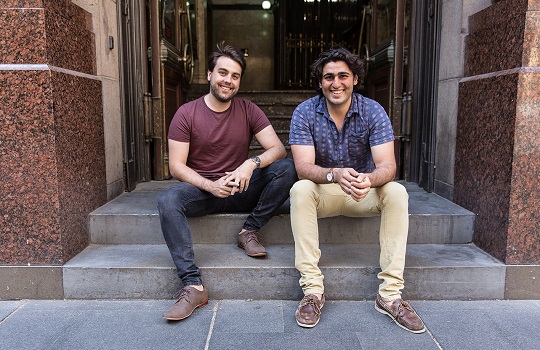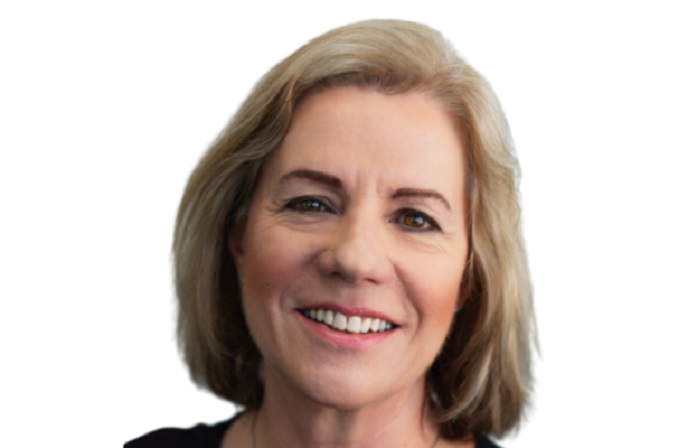
Piggy helps parents teach kids about money using prepaid debit cards and a simple app that lets parents pay an allowance, track spending and encourage saving among their children.
Piggy helps parents teach kids about money using prepaid debit cards and a simple app that lets parents pay an allowance, track spending and encourage saving among their children. Most recently, its founders Mario Hasanakos and Alex Badran, won FST Media’s Sydney Banking 2015 Startup Showcase.
Daniel Paperny sat down with Mario and Alex to find out more about Piggy and what makes them different as a fintech startup.
FST Media: What made you decide to form Piggy?
Hasanakos: We first started building a transactional banking product for millennials in their 20s to 30s. Just by natural inertia, that is who we were, so we figured we would help people like us. Through our user research process we found that as much dysfunction as there is in the way that young adults use their money, they are very entrenched in the strategies that they use. While you can give them tools that they like, they will not necessarily be that eager to use them or switch from the way they are doing their transactional banking already. That was what prompted us to start talking to kids and families, because at that age kids do not have entrenched habits, and so, you have a wider channel for communication.
Our first product that we are launching later this year, the MVP, is a prepaid debit card for 8 to 18 year olds. It is accepted wherever Visa is accepted, just like a normal debit card. It comes with a mobile app that parents and kids then use together, so parents are able to add money onto the card instantaneously. They can also follow their kids’ transactions wherever they spend and encourage them to save with their savings goals.
FST Media: How does Piggy give parents the right foundations for helping kids engage with finances from an early age?
Hasanakos: Most of our product is currently built on solving actual practical problems that parents have or aspirations that their children have. Piggy gives them something that is fun enough that they will be using it daily, because that is a key prerequisite to be able to have a conversation about education. If you build something that lets a child have the freedom and discretion to save and spend, that piece is the first thing that you have to build to have a conversation about financial literacy. That is what our first product, the MVP, is about. It is about creating something that solves a parent’s problem of convenience, of giving their children money and supervising their spending, and helping them with something that is fun enough that they will want to use it every day.
FST Media: In terms of building financial literacy, how is this educational proposition reflected in your app?
Hasanakos: There are a lot of channels for us to communicate our educational messages through. One of the features that we have built into the app is that, when the kids receive money from their parent, it does not go straight onto the card. Instead, it goes into a temporary place called their ‘piggy’. The child has to make an active decision to move money from their piggy into their card or towards a savings goal. And, you build your UX design so that they actively have to drag that money across their savings goals to put it onto their card.
Badran: If you think about it, your first experience with money is often with a piggy bank. The app is purposefully designed so that you are pushing the decision-making onto the child such that there is an awareness around what is otherwise a very intangible quantity like digital money.
FST Media: What makes Piggy different as a fintech startup and what is your promise to everyday Australians?
Hasanakos: When conducting our research, we talked to a lot of families about their lives and what is important to them. We came to learn that what keeps parents awake at night is worrying over whether their children would grow up to be successful and happy, and they are anxious about whether their kids will make financial mistakes when they are young. There is a massive pull to build something that helps parents protect their kids and prevent those challenges in the future and so we built that with Piggy. That is our promise: to help people feel happier about money.
Badran: We have been fortunate enough to build everything in this business from the ground up with the consumer at the front of mind. Big banks and corporate organisations have a lot of legacy infrastructure, and it’s not just their technology; they are ‘legacy’ organisations in terms of every aspect of what they do, which is an issue we do not have.
Hasanakos: There is this popular narrative in the Australian media that people hate banks. However, we came to discover that, for the most part, people have a deep anxiety about money and they bring that anxiety to every interaction that involves money. We could never reconcile this idea as there are such high satisfaction scores for people and their transaction bank, and yet we realised that, historically, people have not been helped when they were younger to learn about money and to make good financial decisions. Money was always this symbol of inadequacy for them, and they bring that attitude to all interactions. As a result, the natural response that they have is apathy and avoidance.
Before people have developed that psychological association to managing finances, if you could make them smile when it comes to money, then you could make them go a tremendous distance in undoing that negative association.
FST Media: In terms of timeframes, when can we expect to see the product launched?
Badran: With the prepaid debit card, because it is in the payments network, there are a lot of regulatory requirements we need to satisfy. It has been a longer process than we would have liked, but a lot of this time has been spent to make sure that the card piece is correctly in place. The technology side, on our front, is ready to go.
Hasanakos: The technology is all in place: the app is built, the server is built. To provide the cards, you need to do so with a licenced ADI [Authorised Deposit-Taking Institution], it is the only way you can issue a scheme card. That partnership has been done, and there has been a bit of lead time between when you sign the partnership and when you see the card go live in February. It is nice in a way as it gives you more space to do user testing.
Badran: We want to be in market as quickly as possible but it is just part of the process. You have to go through all these hurdles and that is going to change once again with the New Payments Platform in 2017. However, it is becoming easier for startups so that is always a positive.
FST Media: What is next for Piggy over the coming months?
Hasanakos: We want to be able to give parents really fine level control in the future, like the ability to limit the times or locations in which a child can spend. Finding the right payments system participant to be able to provide that – when no one else in Australia does it – is a long road. I think we have solved that, but it has certainly taken time to get it right.
In the long run, I do not foresee our product really staying close to what it is on its launch date, that is just an opportunity for us to talk to parents and their kids about money, and then it will become a bigger story about education – that is what we are super excited about.
Badran: From our testing, we have a number of core prerequisites that we need in the product and this first version touches on all of those. We have an end-to-end version of what we see as being the foundation of the product. This year we are really excited about deepening that education proposition. From our discussions, we have understood the parents’ problems and the family dynamic around money. We are now very keen to engage with educational partners to build out that educational proposition.





